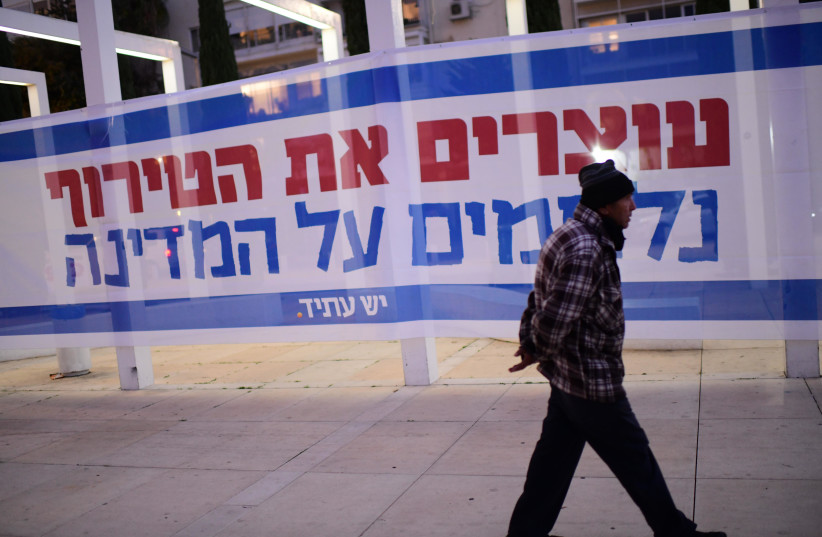Just over half (51%) of Israelis are fearful for the future of the State of Israel, marking a sharp decline in optimism among Israeli citizens over the past decade, according to the Israel Democracy Institute’s (IDI) Israeli Voice Index.
The index released on Sunday examined and analyzed statistical data on Israelis gathered from 2003 to 2022. The poll found that 49% of Israelis share optimistic views regarding Israel’s future, compared with 76% who were asked the same question in a 2012 poll. This trend is consistent among both Jewish and Arab citizens who participated in the IDI poll.
Israelis distrust national institutions, chiefly politicians
Additionally, 2022 has seen a steady drop in Israelis’ trust in all eight national institutions: the IDF, the Israel Police, the presidency, the government, the Knesset, political parties, the media and the Supreme Court, whose low confidence rating among Israelis is considered a factor in the sweeping judicial reforms proposed by Justice Minister Yariv Levin.
In the October 2022 index, the Supreme Court recorded its lowest approval rating since IDI began collecting information, with 42% of respondents expressing trust in it. That index also had record lows in public trust attributed to the Israeli media (23%), the Knesset (18%) and political parties (9%).

However, October’s index also saw the approval ratings for the IDF and President Issac Herzog rise. The rise in the IDF’s approval ratings from 78% to 85% was recorded only among Jewish respondents, while Herzog’s nationwide ratings rose from 55% to 62%.
The IDI analysis found that between 2012 and 2022, overall trust in Israeli institutions dropped from a high of 61% on average to an unprecedented average low of 33%.
High Court should be allowed to strike down laws, Israelis say
In all polls conducted by the IDI over the past decade, an average majority of 55.6% supported the High Court of Justice’s authority to strike down bills and laws passed by the Knesset that it deems violate the principles of democracy.
Levin’s new reform would practically remove all tools available to the High Court to oversight bills passed by the government and the Knesset, prompting opposition leaders and Israelis across the country to criticize the reform.
As expected, support in the High Court varies among different Israeli sectors. The highest percentage of respondents who support the court’s right to intervene in what it perceives to be undemocratic bills comes from the Arab sector and Israelis who identify as left-wing, with 87% and 89% recorded, respectively.
Among Israelis who identify as being right-wing, 37.5% agreed with the majority of their left-wing and Arab counterparts in their support for the High Court.
